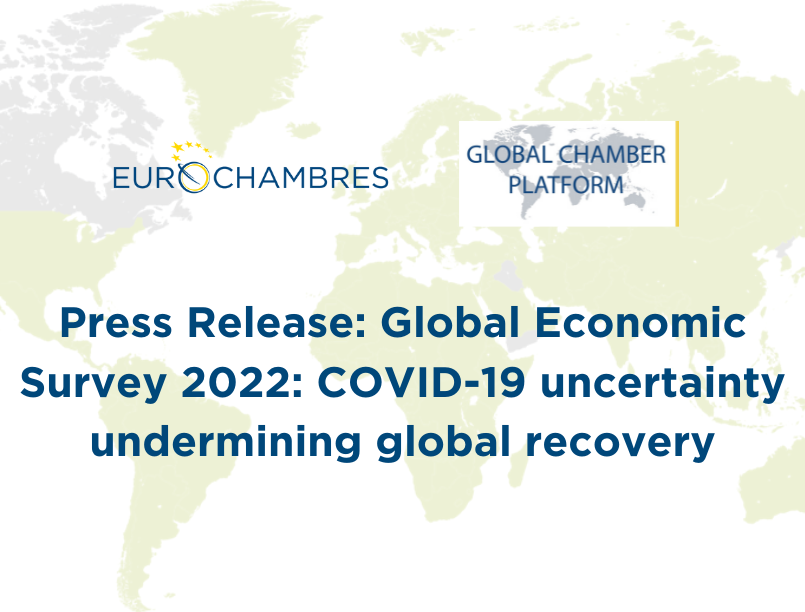Global Economic Survey 2022: COVID-19 uncertainty undermining global recovery
Global Economic Survey 2022: COVID-19 uncertainty undermining global recovery
The Global Economic Survey 2022 published today underlines the impact on global growth of continued uncertainty about the impact of COVID-19. The respondents from across the Global Chamber Platform (GCP) call on international leaders to help businesses overcome this through effective support measures, especially for SMEs that are also dealing with the digital transition. The GCP highlights the importance of multilateral solutions to better anticipate risks to the recovery process, notably supply chain disruption and shortages.
“We see business confidence rising for most of the world’s regions, but COVID-19 and supply chain bottlenecks remain serious impediments to a strong global economic recovery. Governments must not let down their guard and continue supporting businesses through policies that enhance innovation and competitiveness, while rejecting protectionist measures that stifle trade flows and foreign investment” stated GCP Chairman, Christoph Leitl.
Given ongoing market uncertainty due to the pandemic, the GCP calls on the Indonesian G20 Presidency for 2022 to put the continued COVID-19 recovery at the top of the leader’s agenda next year. Other priorities should include the digital and green transition, trade facilitation and boosting supply chain resilience.
The GCP in particular urges policy makers to align their approach to sustainability closely with the private sector. “The global economic recovery and the digital and green transitions can only happen if policy makers develop sensible and practical proposals on a global scale and this requires the strong involvement of the private sector”, added Mr Leitl. “Ambitious targets for the green transition are unlikely to be reached without systematically involving the entrepreneurs who will lead the response and create the solutions.”
The findings of the Global Economic Survey 2022 also emphasise the acute need for government support to help SMEs with the digital transition. While the digital economy is expected to generate $4.2 trillion in 2021, it only represents 10% of small business revenue. The gap between the demand and supply of digitally skilled workers is also increasing, so the GCP invites policy makers to cooperate more closely at global level to identify and roll out policies to re- and upskill the workforce.
About the Global Chamber Platform
The Global Economic Survey 2022 was conducted in October-December 2021 among members of the Global Chamber Platform, bringing together the 16-major national and trans-national Chamber organisations from the four corners of the globe, representing 100 million companies with 1 billion employees.
The full report can be accessed here.
